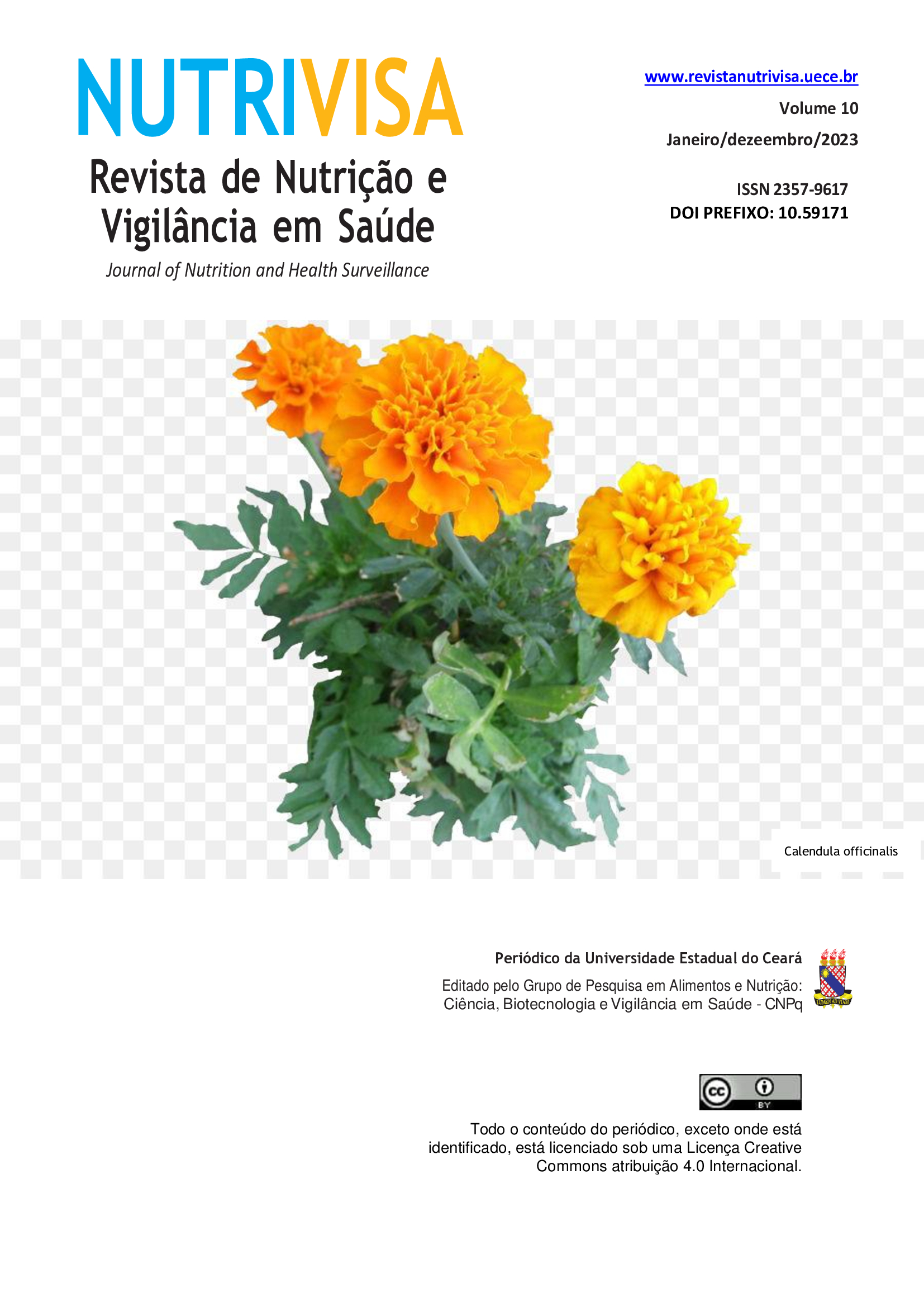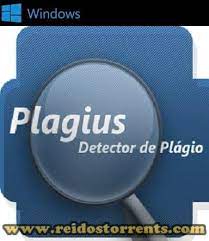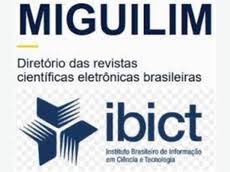Uma Revisão de literatura associando potenciais suplementações com intuito de reduzir a severidade da COVID-19
DOI:
https://doi.org/10.59171/nutrivisa-2023v10e10887Palavras-chave:
Coronavirus, SARS-CoV-2, Nutrientes, Suplementos Nutricionais, Experimentação Humana TerapêuticaResumo
Embora se reconheça o potencial patogênico de diferentes variantes de preocupação de SARS-CoV-2, o estado nutricional do paciente pode
corroborar para o agravamento do decurso da doença. O objetivo deste estudo foi relacionar conceitos dietéticos que favorecessem a menor
severidade em pacientes com COVID-19, considerando marcadores nutricionais relacionados, descritos na literatura, durante a pandemia de
COVID-19. Foi realizada revisão integrativa e qualitativa de dados da literatura especializada, acerca do tema, com o propósito de sintetizar os
principais resultados. Foram selecionados 19 artigos que atenderam aos critérios de inclusão e exclusão. Cerca de vitamina D3 5.000 a 10.000
UI/dia, durante 14 dias se mostrou suficiente para recuperação de sua deficiência, e melhora da condição agravada dos pacientes. A correção
do índice de vitamina C, através de suplementação de 100 mg/kg/dia durante de 5 a 15 dias foi corroborou para a redução da gravidade da
doença. Por meio de suplementações diárias de L-Glutamina 10g, durante 5 dias, e de ômega-3 1000 mg diariamente por 14 dias, observou-se
melhora de parâmetros bioquímicos de pacientes com COVID-19, além de ter sido observada maior sobrevida. Os dados aqui compilados de
diferentes estudos clínicos, demonstram que a correção dos índices séricos, através de suplementações, das vitaminas D3 e C e de L-Glutamina
e, Ômega-3 (EPA) e (DHA), no intuito de corrigir carências nutricionais, previamente apresentadas pelos pacientes avaliados, foram capazes
de colaborar significativamente com o melhor decurso de COVID-19. Foi possível associar a influência de potenciais suplementações para
a redução da severidade da doença.
Referências
ASKARI, Gholamreza; SAHEBKAR, Amirhossein; SOLEIMANI, Davood; et al. The efficacy of curcumin-piperine co-supplementation on clinical symptoms, duration, severity, and inflammatory factors in COVID-19 outpatients: a randomized double-blind, placebo-controlled trial. Trials, v. 23, n. 1, 2022.
BAKER, Alexander N.; RICHARDS, Sarah-Jane; GUY, Collette S.; et al. The SARS-COV-2 Spike Protein Binds Sialic Acids and Enables Rapid Detection in a Lateral Flow Point of Care Diagnostic Device. ACS Central Science, v. 6, n. 11, p. 2046–2052, 2020.
BARAZZONI, Rocco; BISCHOFF, Stephan C.; BREDA, Joao; et al. ESPEN expert statements and practical guidance for nutritional management of individuals with SARS-CoV-2 infection. Clinical Nutrition, v. 39, n. 6, p. 1631–1638, 2020.
BAVARESCO, Anelise. Efeito da suplementação com vitamina D sobre parâmetros de estresse oxidativo em adultos obesos hipertensos submetidos a exercícios físicos. Manancial - Repositório Digital da UFSM. Disponível em: <https://repositorio.ufsm.br/handle/1/782>. Acesso em: 31 mar. 2023.
BEIGMOHAMMADI, Mohammad Taghi; BITARAFAN, Sama; HOSEINDOKHT, Azin; et al. The effect of supplementation with vitamins A, B, C, D, and E on disease severity and inflammatory responses in patients with COVID-19: a randomized clinical trial. Trials, v. 22, n. 1, 2021.
CUMMINGS, Matthew J; BALDWIN, Matthew R; ABRAMS, Darryl; et al. Epidemiology, clinical course, and outcomes of critically ill adults with COVID-19 in New York City: a prospective cohort study. The Lancet, v. 395, n. 10239, p. 1763–1770, 2020.
DE LIGT, Marlies; HESSELINK, Matthijs K. C.; JORGENSEN, Johanna; et al. Resveratrol supplementation reduces ACE2 expression in human adipose tissue. Adipocyte, v. 10, n. 1, p. 408–411, 2021.
DOAEI, Saeid; GHOLAMI, Somayeh; RASTGOO, Samira; et al. The effect of omega-3 fatty acid supplementation on clinical and biochemical parameters of critically ill patients with COVID-19: a randomized clinical trial. Journal of Translational Medicine, v. 19, n. 1, 2021.
ELAJAMI, Tarec K.; ALFADDAGH, Abdulhamied; LAKSHMINARAYAN, Dharshan; et al. Eicosapentaenoic and Docosahexaenoic Acids Attenuate Progression of Albuminuria in Patients With Type 2 Diabetes Mellitus and Coronary Artery Disease. Journal of the American Heart Association, v. 6, n. 7, 2017.
FERNANDES, Alan L; MURAI, Igor H; REIS, Bruna Z; et al. Effect of a single high dose of vitamin D3 on cytokines, chemokines, and growth factor in patients with moderate to severe COVID-19. The American Journal of Clinical Nutrition, v. 115, n. 3, p. 790–798, 2022.
FOGLEMAN, Corey; COHEN, Donna; MERCIER, Alison; et al. A Pilot of a Randomized Control Trial of Melatonin and Vitamin C for Mild-to-Moderate COVID-19. The Journal of the American Board of Family Medicine, v. 35, n. 4, p. 695–707, 2022.
HASSANIAZAD, Mehdi; EFTEKHAR, Ebrahim; INCHEHSABLAGH, Behnaz Rahnama; et al. A triple‐blind, placebo‐controlled, randomized clinical trial to evaluate the effect of curcumin‐containing nanomicelles on cellular immune responses subtypes and clinical outcome inCOVID‐19 patients. Phytotherapy Research, v. 35, n. 11, p. 6417–6427, 2021.
HENROTIN, Y.; LAMBERT, C.; COUCHOUREL, D.; et al. Nutraceuticals: do they represent a new era in the management of osteoarthritis? – a narrative review from the lessons taken with five products. Osteoarthritis and Cartilage, v. 19, n. 1, p. 1–21, 2011.
HONARKAR SHAFIE, Elaheh; TAHERI, Fateme; ALIJANI, Neda; et al. Effect of nanocurcumin supplementation on the severity of symptoms and length of hospital stay in patients with COVID‐19: A randomized double‐blind placebo‐controlled trial. Phytotherapy Research, v. 36, n. 2, p. 1013–1022, 2022.
IZZI, Valerio. The effects of dietary flavonoids on the regulation of redox inflammatory networks. Frontiers in Bioscience, v. 17, n. 7, p. 2396, 2012.
LAVIANO, Alessandro; KOVERECH, Angela; ZANETTI, Michela. Nutrition support in the time of SARS-CoV-2 (COVID-19). Nutrition, v. 74, p. 110834, 2020.
LEAL, Fernando; GARCIA, Alejandra; ABARCA, Lorena del Carmen; et al. Effect of a Nutritional Support System to Increase Survival and Reduce Mortality in Patients with COVID-19 in Stage III and Comorbidities: A Blinded Randomized Controlled Clinical Trial. SSRN Electronic Journal, 2021.
LIBERATI, Alessandro. The PRISMA Statement for Reporting Systematic Reviews and Meta-Analyses of Studies That Evaluate Health Care Interventions: Explanation and Elaboration. Annals of Internal Medicine, v. 151, n. 4, p. W, 2009.
MAGHBOOLI, Zhila; SAHRAIAN, Mohammad Ali; JAMALIMOGHADAMSIAHKALI, Saeidreza; et al. Treatment With 25-Hydroxyvitamin D3 (Calcifediol) Is Associated With a Reduction in the Blood Neutrophil-to-Lymphocyte Ratio Marker of Disease Severity in Hospitalized Patients With COVID-19: A Pilot Multicenter, Randomized, Placebo-Controlled, Double-Blinded Clinical Trial. Endocrine Practice, v. 27, n. 12, p. 1242–1251, 2021.
MAJIDI, Nazanin; RABBANI, Faezeh; GHOLAMI, Somayeh; et al. The Effect of Vitamin C on Pathological Parameters and Survival Duration of Critically Ill Coronavirus Disease 2019 Patients: A Randomized Clinical Trial. Frontiers in Immunology, v. 12, 2021.
MATSUYAMA, Shutoku; NAGATA, Noriyo; SHIRATO, Kazuya; et al. Efficient Activation of the Severe Acute Respiratory Syndrome Coronavirus Spike Protein by the Transmembrane Protease TMPRSS2. Journal of Virology, v. 84, n. 24, p. 12658–12664, 2010.
MOHAJERI, Mahsa; HORRIATKHAH, Ehsan; MOHAJERY, Reza. The effect of glutamine supplementation on serum levels of some inflammatory factors, oxidative stress, and appetite in COVID-19 patients: a case–control study. Inflammopharmacology, v. 29, n. 6, p. 1769–1776, 2021.
NOVAES, Andressa Cristina; TIROLI, Carla Fernanda; RIBEIRO, Beatriz Queiroz; et al. Hepatites virais no contexto brasileiro: uma revisão integrativa. Research, Society and Development, v. 10, n. 1, p. e12510111579, 2021.
OLIVEIRA, Jessica Faggion Pinheiro de; CANSI, Andrieli; ROCHA, Bruno Ambrósio; et al. Vitamin D supplementation attenuates acute inflammatory response. Saúde e Pesquisa, v. 13, n. 2, p. 377–387, 2020.
SILVA FILHO, Carlos R. M. da; SOUZA, Antonio G. de; CONCEIÇÃO, Marta M. da; et al. Avaliação da bioatividade dos extratos de cúrcuma (Curcuma longa L., Zingiberaceae) em Artemia salina e Biomphalaria glabrata. Revista Brasileira de Farmacognosia, v. 19, n. 4, 2009.
PIMENTEL, Rodrigo Fernandes Weyll; SILVA, Arthur Pinto; SANTANA, Amália Ivine Costa; et al. Effect of immunonutrition on serum levels of C-reactive protein and lymphocytes in patients with COVID-19: a randomized, controlled, double-blind clinical trial. Nutrición Hospitalaria, 2021.
PREMAOR, Melissa Orlandin; FURLANETTO, Tania Weber. Hipovitaminose D em adultos: entendendo melhor a apresentação de uma velha doença. Arquivos Brasileiros de Endocrinologia & Metabologia, v. 50, n. 1, p. 25–37, 2006.
RAIZEL, Raquel. Efeito da suplementação com L-glutamina e L-alanina, livres ou como dipeptídeo, sobre a lesão, inflamação e citoproteção em modelos de estresse in vivo e in vitro. 2017. Tese (Doutorado em Nutrição Experimental) - Faculdade de Ciências Farmacêuticas, Universidade de São Paulo, São Paulo, 2017. doi:10.11606/T.9.2017.tde-26102017-112453. Acesso em: 2023-04-05
RASTOGI, Ashu; BHANSALI, Anil; KHARE, Niranjan; et al. Short term, high-dose vitamin D supplementation for COVID-19 disease: a randomised, placebo-controlled, study (SHADE study). Postgraduate Medical Journal, v. 98, n. 1156, p. 87–90, 2020.
SABICO, Shaun; ENANI, Mushira A.; SHESHAH, Eman; et al. Effects of a 2-Week 5000 IU versus 1000 IU Vitamin D3 Supplementation on Recovery of Symptoms in Patients with Mild to Moderate Covid-19: A Randomized Clinical Trial. Nutrients, v. 13, n. 7, p. 2170, 2021.
SULLI, Alberto; GOTELLI, Emanuele; CASABELLA, Andrea; et al. Vitamin D and Lung Outcomes in Elderly COVID-19 Patients. Nutrients, v. 13, n. 3, p. 717, 2021.
SUN, Pengfei; LU, Xiaosheng; XU, Chao; et al. Understanding of COVID‐19 based on current evidence. Journal of Medical Virology, v. 92, n. 6, p. 548–551, 2020.
TAN, Chuen Wen; HO, Liam Pock; KALIMUDDIN, Shirin; et al. Cohort study to evaluate the effect of vitamin D, magnesium, and vitamin B12 in combination on progression to severe outcomes in older patients with coronavirus (COVID-19). Nutrition, v. 79–80, p. 111017, 2020.
THOMAS, Suma; PATEL, Divyang; BITTEL, Barbara; et al. Effect of High-Dose Zinc and Ascorbic Acid Supplementation vs Usual Care on Symptom Length and Reduction Among Ambulatory Patients With SARS-CoV-2 Infection. JAMA Network Open, v. 4, n. 2, p. e210369, 2021.
TORRES, Montserrat; CASADO, Guiomar; VIGÓN, Lorena; et al. Changes in the immune response against SARS-CoV-2 in individuals with severe COVID-19 treated with high dose of vitamin D. Biomedicine & Pharmacotherapy, v. 150, p. 112965, 2022.
WANG, Dawei; HU, Bo; HU, Chang; et al. Clinical Characteristics of 138 Hospitalized Patients With 2019 Novel Coronavirus–Infected Pneumonia in Wuhan, China. JAMA, v. 323, n. 11, p. 1061, 2020.
XING, Yaru; ZHAO, Bing; YIN, Lin; et al. Vitamin C supplementation is necessary for patients with coronavirus disease: An ultra-high-performance liquid chromatography-tandem mass spectrometry finding. Journal of Pharmaceutical and Biomedical Analysis, v. 196, p. 113927, 2021.
YE, Qing; WANG, Bili; MAO, Jianhua. The pathogenesis and treatment of the `Cytokine Storm’ in COVID-19. Journal of Infection, v. 80, n. 6, p. 607–613, 2020.
ZHOU, Peng; YANG, Xing-Lou; WANG, Xian-Guang; et al. A pneumonia outbreak associated with a new coronavirus of probable bat origin. Nature, v. 579, n. 7798, p. 270–273, 2020.
Downloads
Publicado
Como Citar
Edição
Seção
Licença
Copyright (c) 2023 Gabriel Guimarães Leão, Elizabete Helbig, Dulcinea Blum Menezes

Este trabalho está licenciado sob uma licença Creative Commons Attribution 4.0 International License.














